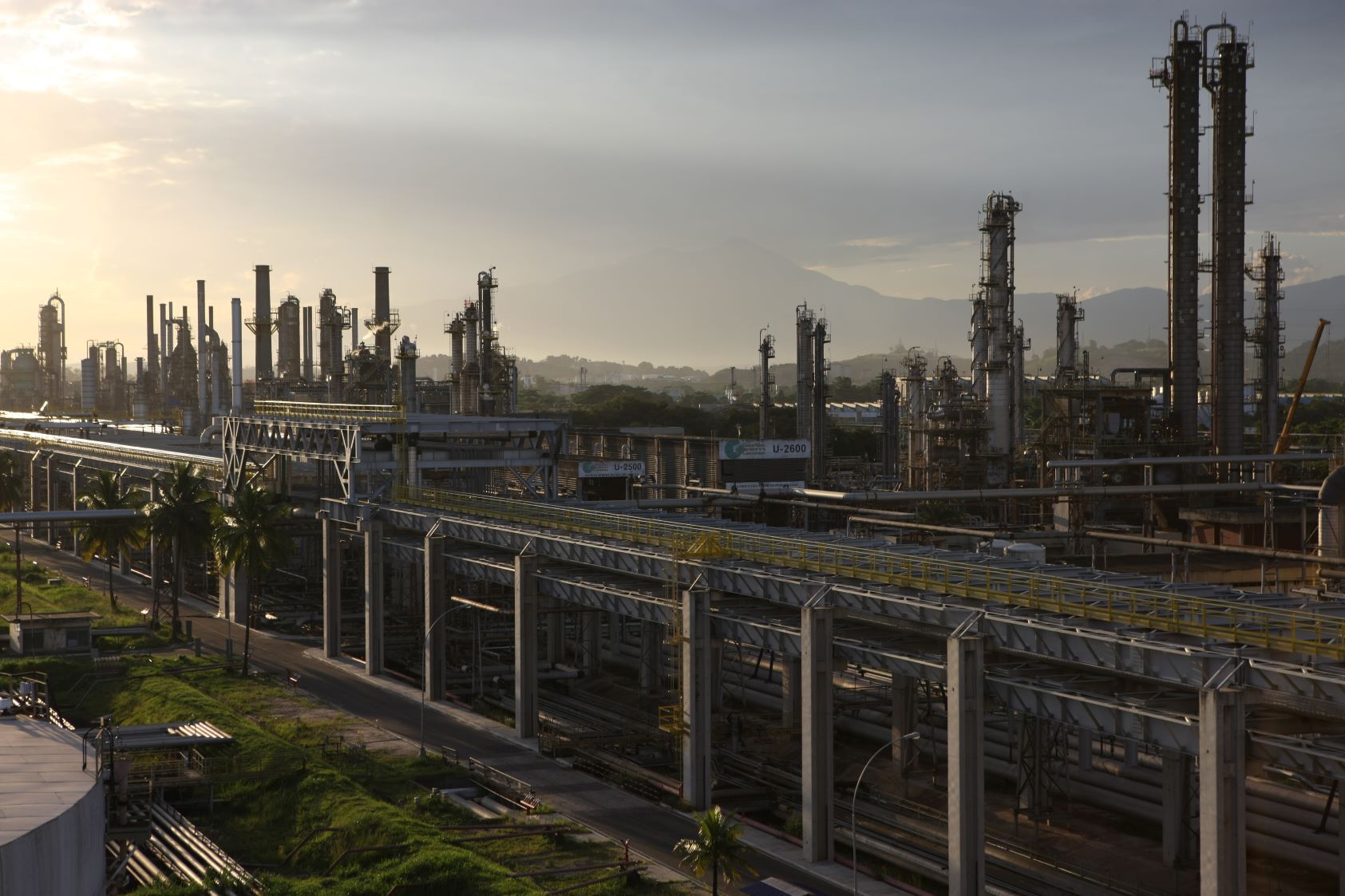O uso deste material é autorizado apenas para fins editoriais.
Petrobras intensifies tests to produce renewable diesel in its refining park
In addition to Repar, which already sells the product, another three refineries performed tests and are able to produce Diesel R5
Photo: Petrobras News Agency

Duque de Caxias Refinery (Reduc, RJ)
Download Duque de Caxias Refinery (Reduc, RJ)Petrobras has intensified the tests in its plants to boost its capacity to produce renewable fuel in its refining park. In addition to the Presidente Getúlio Vargas Refinery (Repar, PR), which is already selling the product, production tests were run at Presidente Bernardes Refinery (RPBC, SP), Duque de Caxias Refinery (Reduc, RJ), and Paulínia Refinery (Replan, SP).
Diesel R5 has been generated from the joint processing of crude oil byproducts (mineral portion) with vegetable raw materials such as soybean oil. This new fuel is a sustainable alternative for diesel-cycle vehicles, as the reduction in emissions associated with the renewable portion is less than 60% compared to mineral diesel, which may be higher depending on the raw material used.
Petrobras’s Pioneering Spirit
Reducing greenhouse gas emissions is a global challenge imposed by climate change in which the oil and gas industry plays an important role. One of the main actions to build a decarbonization route is to adapt the traditional oil refining scheme, enabling the processing of renewable raw materials and reducing the intensity of carbon products.
In the case of Petrobras, Diesel R5 (with 5% less renewable content) is the result of the development of its own technology, conceived and developed at the Research Center (Cenpes), tested and approved for industrial production in refineries.
Backed by excellent results, Petrobras officially released Diesel R5 on the market and, in September 2022, the first sale of the product was made at Repar. Today, the refinery can produce Diesel R5 in its two hydrotreatment plants, with the ISCC Plus (International Sustainability and Carbon Certification) and ISCC EU (as per RED Renewable Energy Directive), recognizing its contribution to a reduction in greenhouse gas effects.
Increasing production is a commitment to a fair energy transition
Late last year, another three refineries joined the Diesel R5 production tests. RPBC and Reduc received adaptations to their logistical infrastructures and hydrotreatment processing plants, making them able to produce Diesel R5 as well. Replan has already performed its first test, is finishing adjustments to its logistical infrastructure, and is able to produce.
According to the Industrial Process and Product Director William França, this is a milestone in Petrobras’s decarbonization path. “Coherent with societal demands and a changing world, we are adapting our refineries with joint processing plants based on renewable chains. We are committed to a fair energy transition and increasingly more sustainability of our products.”
According to the 2024-28 Strategic Plan, roughly USD 1.5 billion will be invested in the biorefining segment. Resources have also been estimated to set up dedicated plants for aviation biokerosene and 100% renewable diesel at RPBC and GASLUB, which will be finished after 2028.
Downloads
Text of this article
Text downloadVideos from this article
Você pode se interessar por
Browse the Sections:
Choose a channel:
Accessibility:
Language:
Select a language:
